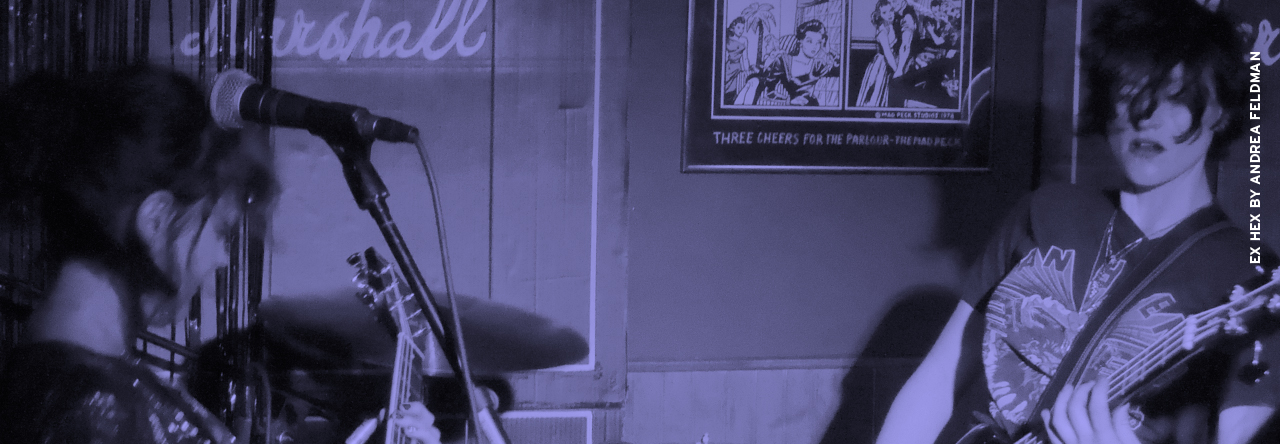Nobody heard him, the dead man,
But still he lay moaning:
I was much further out than you thought
And not waving but drowning.
— from “Not Waving But Drowning” by Stevie Smith
I first heard Vic Chesnutt in 1988, when my friends and I drove from Tallahassee, Florida, to north Georgia for the first Athens Music Festival. Celebrating a scene already past its prime, the event was held on a beautiful Fall day, in a farm-country pasture just outside of town. Modest in size and presentation, the festival air had a beguilingly provincial “Hey, kids, let’s build a stage, and put on a show” ambience. Arriving early, we spread our blankets on coarse, sunburned grass in a position close to the stage, dropped some acid, and awaited our entertainment.
There were hours to go before Michael Stipe would take the stage, performing as a trio with a local folk act who went by the name Indigo Girls. In between would be groups known and unknown—Chickasaw Mudd Puppies, Gravity Creeps, Kilkenny Kats, Dreams so Real, Love Tractor, Widespread Panic (not yet the jam-band phenomenon that has contaminated the world in the years since) and others—playing music that ranged from simple blues stomps to epic rock anthems. For me, one of the earliest acts would turn out to be the most memorable, for all the wrong reasons; an act that would change my life forever, for all the right ones.
Unknown and as yet unrecorded, Vic Chesnutt performed late in the morning, carried up the stage steps in his unwieldy chair by a pair of grunting stagehands, who wheeled him to the microphone and put his battered guitar in his stricken hands. What came next, with us now deep under the influence of LSD, we simply weren’t prepared for. He was crippled, and angry. His hands, incapable of caressing, clawed and scratched their way across the strings. His voice, harsh and raw, declared his defiance through lyrics childlike and strange. “I am not a victim. I am intelligent!” he wailed in “Speed Racer.” He threw his head back to whistle, and what came out was little more than air, pushed forward with desperate force.
In our impaired state, my friends and I found him ridiculous, and we laughed. We laughed. When he sang “Mr. Reilly,” with its lines “just a week ago she was beautiful, but now she’s rather vile” and “they found her in her skates, she was the coldest cadaver in the state,” we lost all control. Close to the stage, and thus in his line of sight, my friends turned their backs on him, lest he see their laughter. Unwilling to turn my back on someone performing for me, I struggled to keep my mirth under control, even as tears poured from my eyes. In the midst of my shaking, I was ashamed, but I could not stop.
Redemption, in the guise of revelation, came nearly a year later. Browsing the racks of my local record store, I happened across the latest release from the Texas Hotel label, by Vic Chesnutt. I had not forgotten Vic from that day in the pasture, that ridiculous little man with his ridiculous little songs. The album title seemed entirely appropriate: Little. I added it to my purchases, partly to see if the music was as silly as I remembered, and partly to play it for friends so they could hear for themselves the truth of the funny story I brought back from Georgia.
Arriving home, I placed the A-side on my turntable. A few plucked notes that bent upwards, a plaintive harmonica, and then the first line, “I dreamed I was dancing with Isadora Duncan.” I was smitten, and devastatingly so. Everything I had thought and felt before was wrong. This was far from ridiculous. This, this music, this little song, was simple, sad, and crushingly beautiful. “I whistled to her how I loved her the best, but she sang ‘I can’t believe you own this attitude.’” All I would come to love about Vic was right there, as he, bound to his chair for life by a car accident of his own creation, dreamt of an impossible dance with a dead dancer whose life had ended in a car accident of her own creation. “With some ballet moves I removed her shoes, and I painted my lips to hers, and still she sang, ‘I can’t believe you own this attitude.’”
To say I devoured the rest of the album would be an understatement. That weekend, I played it over and over and over; by Monday I would know every word by heart, feel every word in my heart. Michael Stipe, who produced the album, had the good sense to just turn on the mic and let Vic sing his little songs and play his guitar, without adornment. What came out was everything—anger and defiance, hope and dreaming, love and longing, melancholy and regret, passion, pain, sarcasm and humor—in lyrics that were strange, elliptical, and occasionally sweet, about characters made brittle from the difficulty of being.
In the years since, the songs on Little have been my constant companion. I have wooed a girl by playing her “Speed Racer,” and dealt with the bitterness of lost love by playing myself “Soft Picasso” and “Independence Day.” I have remembered the scarred loneliness of my childhood through “Rabbit Box.” I have found comfort in times of depression by listening to “Stevie Smith,” in which Vic sings the verses to the British poet’s famous poem “Not Waving But Drowning.” Seventeen years later, I still can’t listen to the album once without listening to it repeatedly, for days on end. I sing along, in my head and out loud.
Despite over a dozen brilliant albums to his credit (the first five of which I would place in the same pantheon as the Ramones’ first four records, or the Rolling Stones’ four-album streak that began withBeggar’s Banquet and ended with Exile on Main Street), Vic remains little more than a cult figure. His music is difficult to categorize, and, if you value slick and polish, difficult to listen to. His voice, brittle and nasal, serves lyrics that, at first hearing, can seem clumsy, even goofy. They plane in on their themes obliquely, arrive at a crucial point, and then dive-bomb to an emotionally devastating conclusion. His songs are bitter pills to swallow, but they reward with a gradual, diffuse warmth.
Since that first encounter at the Athens Music Festival, I have seen Vic perform several times over the years. At one show, I even had the audacity to shout out a request, something I had never done before (and haven’t since). The song was “See You Around” from Vic’s album About to Choke. Vic responded by saying, “Awww, I don’t wanna sing that. That’s an asshole song.” He’s right, of course. It’s bitter and angry, in an “Idiot Wind” kind of way, only with a little sadness and regret thrown in. When he sings the lines “and hang out all night/in the familiar fluorescent light/of Dunkin Donuts” and “I’m sorry, but your routine/is coming off a bit ragged,” his delivery is entirely reminiscent of Dylan’s sneering, snarled performance of “Idiot Wind” on the live Hard Rain album, but his delivery of the refrain, “I will see you around,” is drenched with melancholy.
Desperately seeking atonement for my cruelly dismissive first reaction to hearing him all those years ago, I have since been a one-man choir hell-bent on getting Vic his due, preaching his gospel to any who will listen. Few do. My brother-in-law called Vic’s lyrics “shallow,” and I never forgave him for it (it seemed an especially grievous transgression on his part, considering his love for the ethereal insipidness of the Cocteau Twins). In the past twenty years, I have had just one fight with my brother, after he made fun of Vic as we were driving to dinner with our girlfriends one night. The tension built to the point that I had to pull over, so we could both get out and talk our way through it in private.
Sound silly? You bet. But I can’t help it. I love Vic. And, for an album so little in its ambition and presentation, with its little songs of love and loneliness, Little still beats large within my heart.
***
![]() Vic Chesnutt, “Mr. Reilly” [right-click-save-as, s’il vous plaît]
Vic Chesnutt, “Mr. Reilly” [right-click-save-as, s’il vous plaît]
***
Giles Cassels lives and breathes in San Mateo, California. His favorite word is “Dolores.” He can be reached at jakelives@excite.com.




claudia
i’d never even heard of the guy before today. npr was reminiscing due to his recent suicide. judging by what they had to say about him on npr (michael stipe, terry gross, et al) and what is written above i must get my hands on “little” asap, to be moved to the degree that you were by his music/lyrics…wow is all i can say.
Juan Duque
Thanks for such a personal post. I squirmed when I read about you and your pals, hopped up on acid, laughing at Vic. And I love it that you later discovered just how great he is. If his music is unknown and underappreciated in the U.S., think about how much more so it is here in Medellin, Colombia!!
Un abrazo,
Juan Duque
adam cohen
Quite moving. I think yr well on yr way to that redemption.
Dave S
Couldn’t have said it better. First I saw/heard Vic was at a tiny bar in Charlotte, NC in 1992. Hard to hear much, he was pretty drunk and angry, and I just thought what the hell?? Bought Little and West of Rome and wore them out. He’s a genius. I’ve also had a hard time convincing many of this.